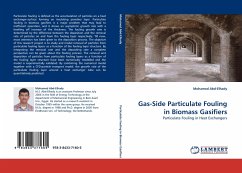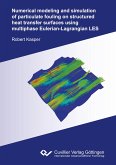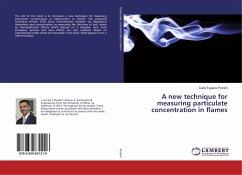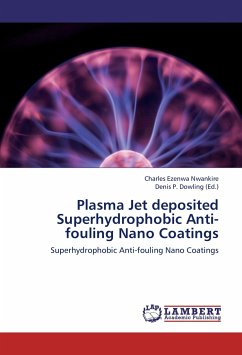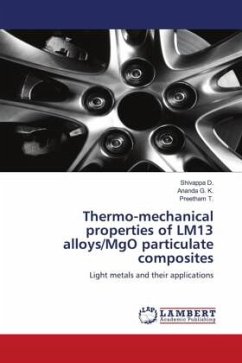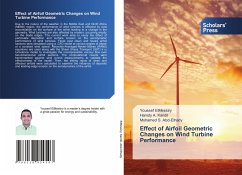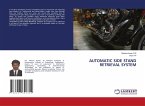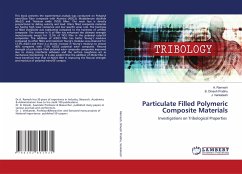Particulate fouling is defined as the accumulation of particles on a heat exchanger-surface forming an insulating powdery layer. Particulate fouling in biomass gasifiers is a major problem that may lead to inefficient operation, and it shows an asymptotic growth rate with a levelling off increase of the thickness. The fouling growth rate is determined by the difference between the deposition and the removal rate of particles on and from the fouling layer respectively. Till now, most attention has been given to the deposition process. The objective of this research project is to study and model removal of particles from particulate fouling layers as a function of the fouling layer structure. By integrating the removal rate and the depositing rate a complete perspective can be given about the fouling process. The removal and deposition of particles from particulate fouling layers as a function of the fouling layer structure have been numerically modelled and the model is experimentally validated. By combining the numerical model together with a CFD-particle transport model, the growth rate of the particulate fouling layer around a heat exchanger tube can be quantitatively predicted.
Bitte wählen Sie Ihr Anliegen aus.
Rechnungen
Retourenschein anfordern
Bestellstatus
Storno

